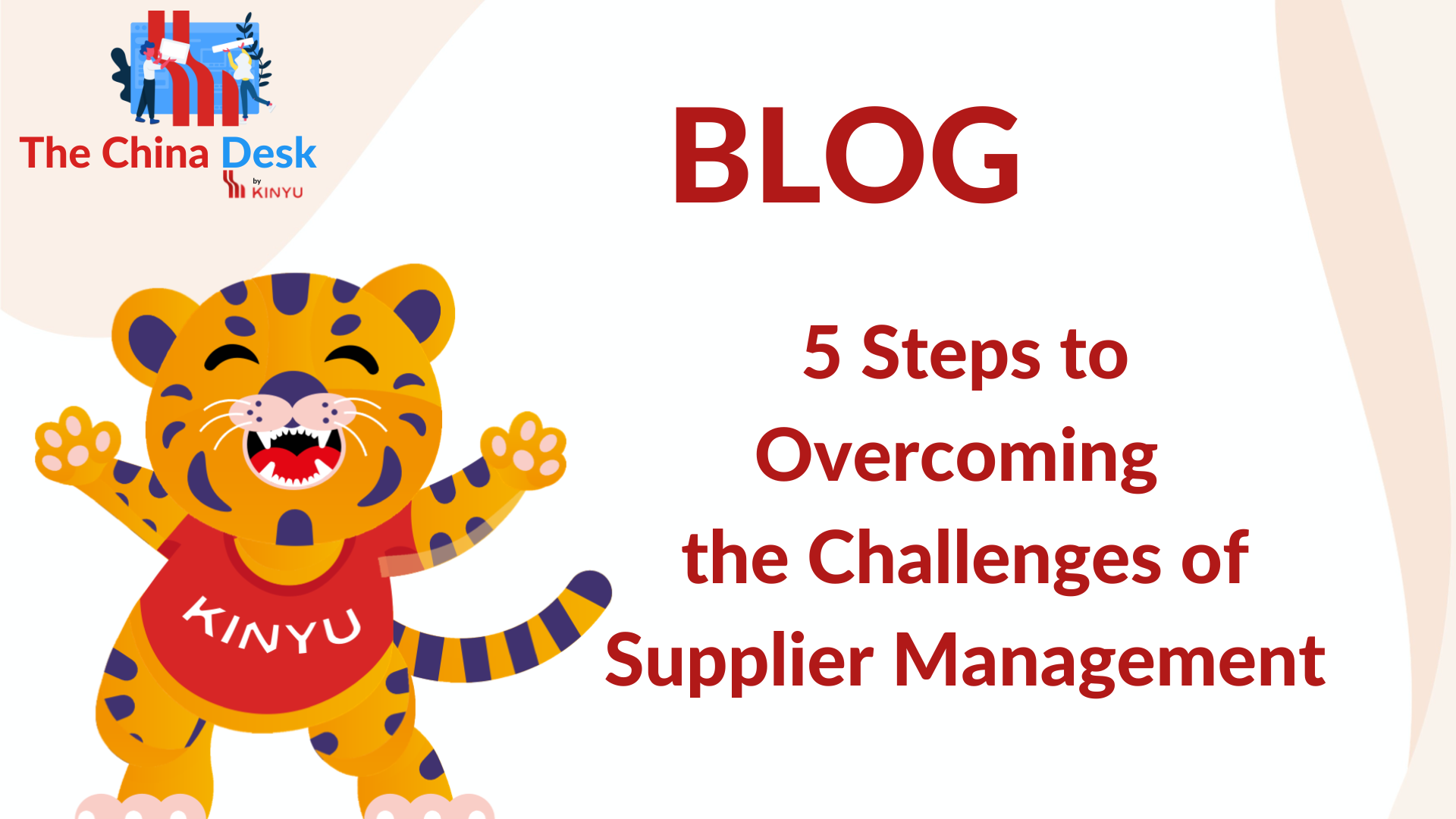Managing your supplier or suppliers successfully is a critical part of doing business. The China Desk has effectively implemented a solution that overcomes the challenges of working with suppliers in China. This blog will explore the importance of face-to-face relationships, communication preferences and cultural differences when working with suppliers in China.
The challenges of working with suppliers in China
Some challenges at the forefront of supplier management in China are different social landscapes, language barriers and cultural differences. This blog discusses the key aspects to consider to craft beneficial supply chains, especially in China.
- Legal – The Chinese legal system is different and incompatible with English common law used by most Western countries. The reliability of a strong contract is always in doubt as companies grapple with contract law unfamiliar to them.
- Language barriers – Many suppliers in China, do not speak English, so it is essential to have someone on your team who can communicate effectively in Mandarin or Cantonese.
- Social and Cultural differences – For example, Chinese suppliers can find it difficult to say no or report problems, whereas western companies are very open and frank with difficulties. It is essential to be aware of these differences and to adjust your approach accordingly.
- Technological and Information flow challenges are more specific to China but can significantly impact strategy. Google, Facebook and many other platforms we use daily are forbidden in China, which raises an essential question. How do you get the right information to the correct person in real time? Navigating this can be difficult, and this is where having someone who knows how to communicate with both sides openly rears its valuable head. Having personnel on the ground in China can be game-changing for all the right reasons.
Despite these challenges, they are not impossible to overcome and create a successful supplier management strategy. You can successfully manage your suppliers in China by building solid relationships, understanding cultural differences, and establishing clear communication channels.
How to overcome the challenges of supplier management
Navigating the challenges of supplier management in China can be daunting, but remember, the supplier is your friend – when you do well, they do well! So it must be necessary to have frank conversations with them to benefit both sides. By following a few simple steps, you can create a successful strategy. The China Desk’s solution includes several measures to ensure effective communication.
The first step is to build a strong relationship with the supplier. As discussed in previous blogs, crafting business relationships in China requires a few cultural considerations. Building bridges is done most effectively through in-person meetings (where possible) and getting to know the supplier. It is also essential to establish clear communication channels and protocols.
To add to this, getting a lawyer qualified to advise on Chinese contract law is vital. Make sure you have the right contracts to focus on the projects as early as possible. It is much better for the relationship and your bottom line if you prevent issues with a sound contract rather than mitigating problems later down the line!
The second step is understanding the supplier’s business model and how they operate. To do this comprehensively, you need to become well acquainted with their strengths and weaknesses and areas of expertise.
To further understand the organisational structure, two key questions to ask yourself would be:
- What resources do they have in each department?
- How do they allocate resources to projects?
It’s also good to have direct contact with personnel from each department; sometimes, the account manager will only paraphrase and not provide the detail you want.
Below is a visualisation of the relationship between the Client and the Supplier in China and all the facets involved. In particular, The China Desk by Kinyu helps businesses manage those relationships on the Client’s behalf.
The China Desk by Kinyu: Managing Suppliers on behalf of Clients
The third step is to develop a shared understanding of the company’s objectives and how the supplier can help to achieve these. A critical step in working towards these is to agree on mutually-beneficial targets and KPIs.
The fourth step is to create a system for monitoring and managing the supplier. This system should include regular reviews, established escalation procedures, and defined roles and responsibilities. Speaking with Benjamin King, Kinyu’s Founder and Director, he gives some essential advice to Clients on monitoring and management.
“I suggest a two-pronged approach to communication with a supplier. First, you a good relationship at the account manager level, the day-to-day stuff, so they feedback information timely to you. However, you also need to have a senior level relationship. Things rarely get taken upstairs by the internal account managers. Therefore you must have that access to the senior management/directors of the business.”
The fifth step is to communicate and engage with the supplier continuously. This ongoing open communication channel includes maintaining regular contact, providing feedback, and addressing concerns. The process is time-consuming, especially if you are trying to network remotely from the US or Europe. A way to counteract this is to have your supplier account manager on the ground.
By following these steps, The China Desk has overcome the challenges of working with suppliers in China and creating a successful supplier management strategy. In addition, face-to-face meetings have much more impact than video conferences, which is why The China Desk has been working with clients who have not been able to visit China due to Covid-19.
If you want more information about setting up, managing your suppliers or getting a mascot on the ground in China, please contact us by emailing info@kinyu.co.uk.



